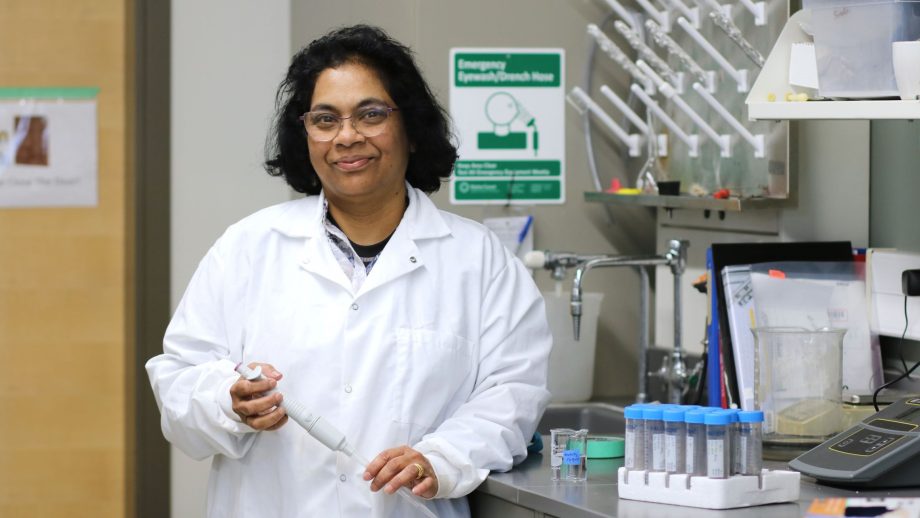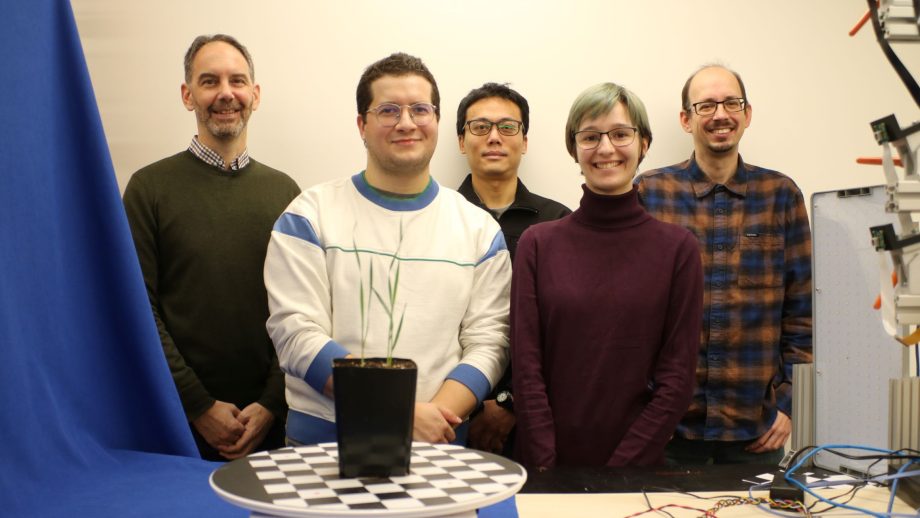Despite being one of the world’s most preventable cancers, colorectal cancer is the third deadliest for men and second for women.
Dr. Anuraag Shrivastav, Professor in the Department of Biology at The University of Winnipeg, is hoping to reduce the mortality rate by creating a new screening test to detect colorectal cancer earlier. Shrivastav has been conducting cancer research for more than 15 years now, including creating a test to improve the treatment odds of patients diagnosed with breast cancer.
In our small clinical trial, which we just completed, we found that this test is highly sensitive and specific to not just colorectal cancer, but early stages of colorectal cancer.
Dr. Anuraag Shrivastav
“The underlying biology of cancer is an important aspect to design tests and therapies,” he explained. “Colorectal cancer is highly preventable if it’s diagnosed at an early stage, and it’s one of the few cancers with screening tests.”
However, the problem, he says, is that the current screening test in Canada is “quite unpleasant,” because it’s a fecal test. The scientific name is the guaiac fecal occult blood test (gFOBT).
In hopes of creating a more effective and patient-friendly test, Shrivastav and his team have developed a novel blood test that detects precancerous lesions and colorectal cancer. In a small proof-of-concept study, the test was highly sensitive in detecting precancerous lesions, outperforming other non-invasive colorectal cancer screening tests currently in the market.
“It can easily be incorporated into your annual bloodwork,” Shrivastav explained. “In our small clinical trial, which we just completed, we found that this test is highly sensitive and specific to not just colorectal cancer, but early stages of colorectal cancer.”
Preventing colorectal cancer
The Canadian Cancer Society recommends those with an average risk of colorectal cancer start participating in regular stool screen tests at age 50.
Shrivastav says that this is typically the age when individuals start getting polyps in the GI tract, which are abnormal tissue growths in the colon and rectum. While not all polyps are dangerous and not all develop into cancer, certain polyps can be precancerous.
“These are the polyps that can transform to colorectal cancer, but it almost takes five to 10 years,” he explained. “Imagine the window of opportunity we have here. In this period, you can remove these polyps by colonoscopy and prevent colorectal cancer. That is huge.”
Through this new screening test, if a patient tests positive following blood work, they are then sent to get a colonoscopy and have medical professionals physically look at and remove all of the polyps.
There are two main benefits to this. The first is that early detection prevents colorectal cancer. The second is that fewer people will require colonoscopies because the gFOBT produces many false positives, whereas the blood test will not.
“If you are detecting it early, the health care costs are low. For example, Stage 1 colorectal cancer treatment costs approximately $25,000 to the Canadian health care system,” he explained. “It’s approximately $75,000 if Stage 4. So, it does not only improve the quality of life, but it also brings down the cost for the health care system.”
Another positive is that young high-risk patients who may have a family history of the disease can begin to get easily tested early in life.
Student research key
Shrivastav says the study wouldn’t have been possible without his clinical collaborator, Dr. Harminder Singh, the co-applicant on the Research Manitoba grant from the Health Sciences Centre and the University of Manitoba.
Several undergraduate and graduate UWinnipeg students have also played a big role in the initial study and in getting the research to this particular point.
Shiv Bhanot, Jenny Rathinagopal, and Jordan Min have previously worked on this project with Shrivastav and his current graduate student, Abinash Meher, is one of the key laboratory personnel working on this project.
An international student from India, Meher says learning from Shrivastav has been a rewarding experience, as has been the research he’s undertaken.
“I really want to help society,” Meher said. “We can see how cancer has spread across the world and if you ask a random person, they will know someone close to them in their lifetime who’s had cancer.”
Heading towards commercialization
Thanks to a $261,000 Research Manitoba Innovation Proof-of-Concept Grant, Shrivastav and his team will be conducting a study to validate the test. The original proof-of-concept study included 74 patients, but now they are planning a confirmatory trial of 650 patients with industry partner VastCon, who is developing the test and is interested in taking it to the market.
“A confirmatory trial can take us to the next level by essentially showing the validity of the test,” he explained. “The next step would be bringing the test to the market after a pivotal trial.”
In the United States, Shrivastav says there’s another screening test called Cologuard by Exact Sciences that he calls “poop in a box,” which has better efficacy than the gFOBT.
Exact Sciences has partnered with Pfizer to create the space for colorectal screening. The positive results from the proposed clinical study would open the door for collaboration with big pharma companies to bring the test to the market.
“It shouldn’t take any more than three or four years after the study to bring the test to the market if everything goes well.”






